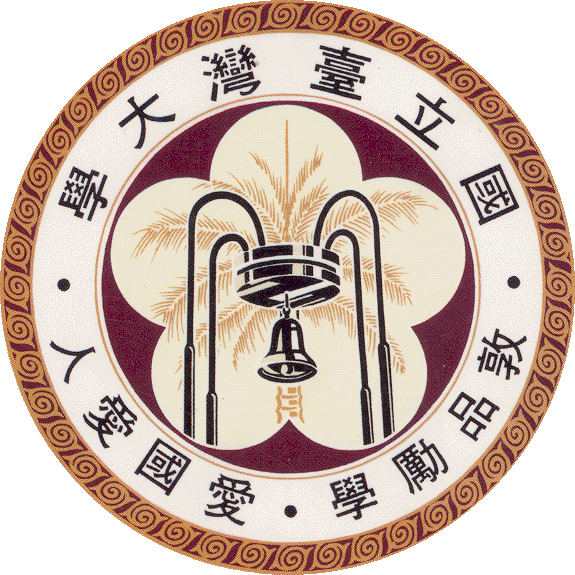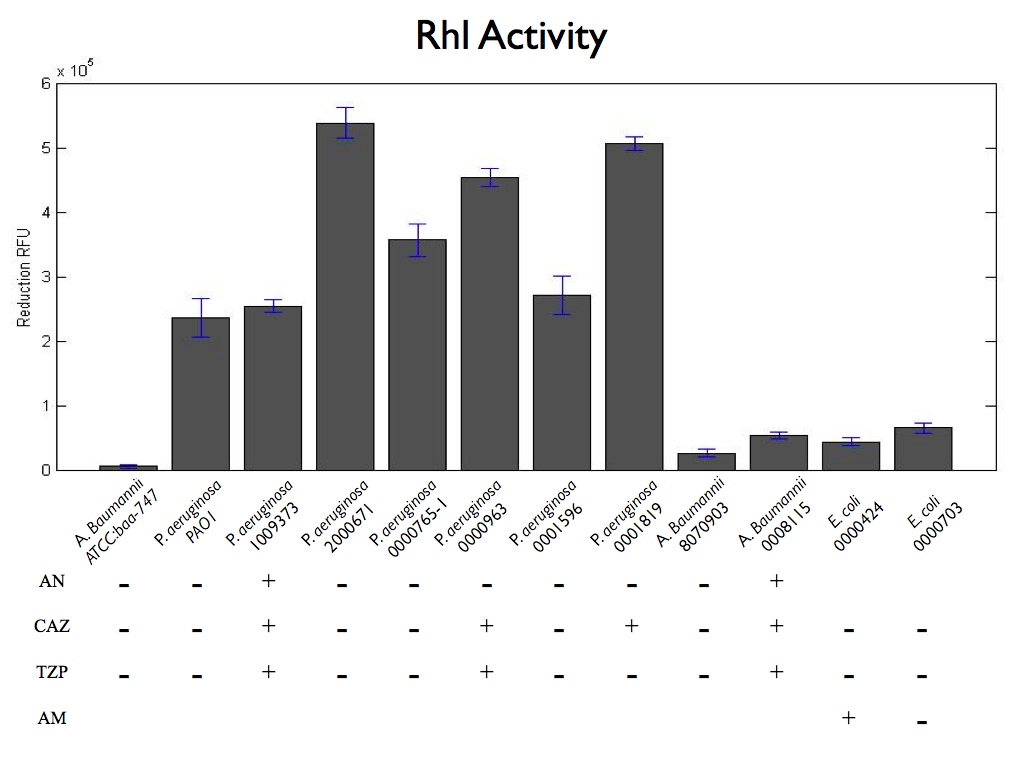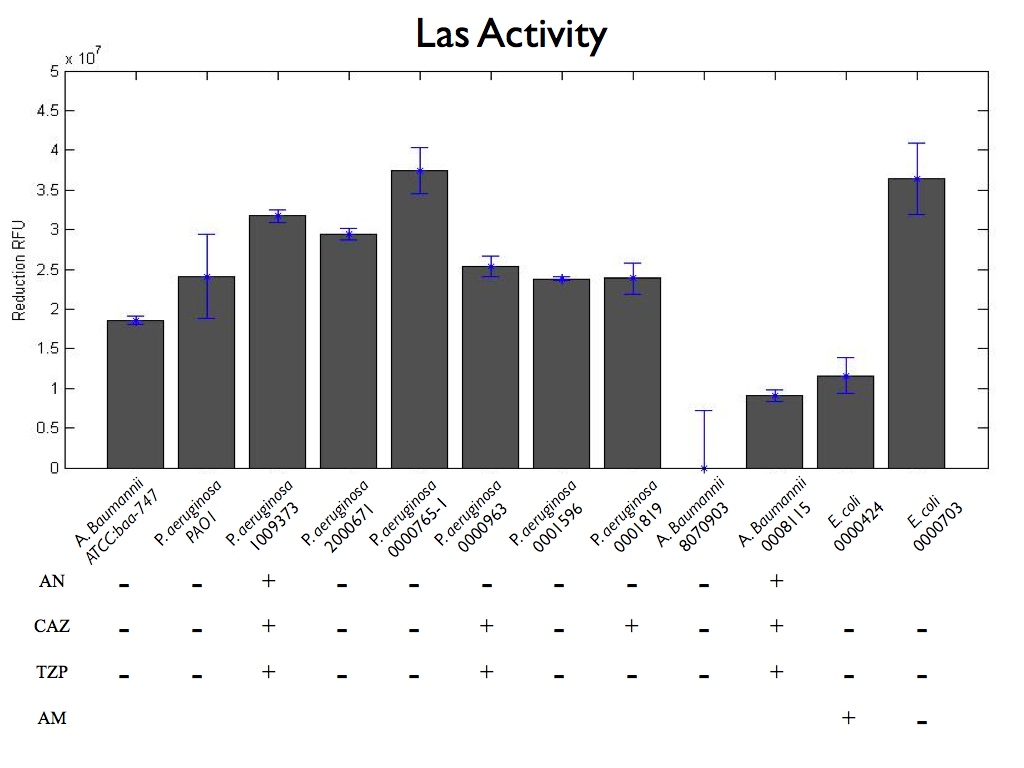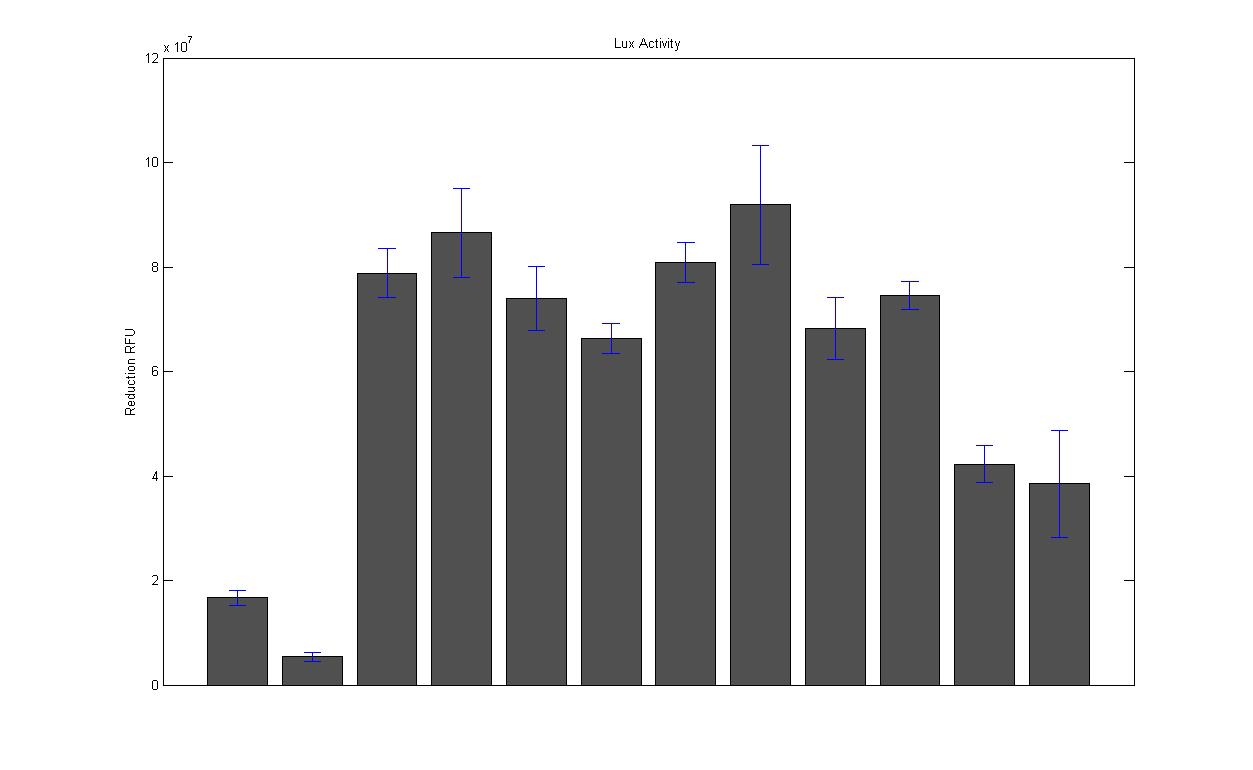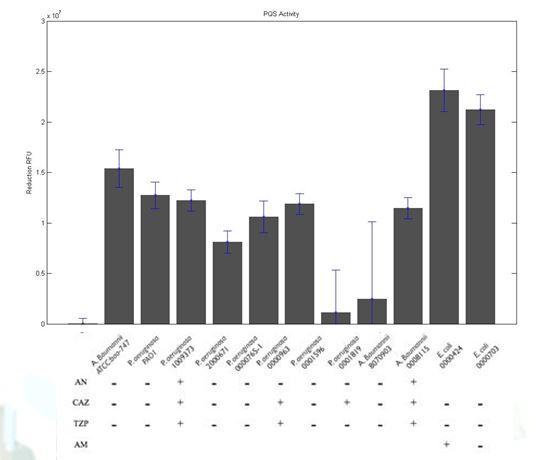Team:NTU-Taida/Result/Clinical Strains
From 2013.igem.org
Contents |
Clinical Strain Fluorescence
After using AHL molecules as our testing targets, we use clinical species as our functional testing targets. We incubate the bacteria resistant strains overnight, then centrifuge the bacteria medium and use the supernatant(which is possible to contain AHL) as our testing sample. We use ELISA plate reader to read the fluorescence after 4 hours of reaction of the supernatant and biosensor. We hope results of clinical species provide better data for these biosensors in order to reach the market.
These strains include:
(1) Acicetobacter baumannii ATCC baa-747 (2) Pseudomonas aeruginosa PAO 1 (3) Pseudomonas aeruginosa 1009373 (4) Pseudomonas aeruginosa 2000671 (5) Pseudomonas aeruginosa 0000765-1 (6) Pseudomonas aeruginosa 0000963 (7) Pseudomonas aeruginosa 0001596 (8) Pseudomonas aeruginosa 0001819 (9) Acicetobacter baumannii 8070903 (10) Acicetobacter baumannii 0008115 (11) Escherichia coli 0000424 (12) Escherichia coli 0000703
A. Rhl quorum sensing
We use Rhl-mCherry(BBa_K1157006) biosensor with no positive feedback to detect quorum sensing signals of clinical species. The results are as follows. Pseudomonas has significant expression level compared to other species, and there has been different expression level between different strains of P. aeruginosa.
B. Las quorum sensing
We use BBa_K575024 (Las biosensor) to detect quorum sensing signals of clinical species. The results are as follows. We observed that species apart from P. aeruginosa also has response to this kind of receptor, and expression level varies among different strains.
C. Lux quorum sensing
We use (BBa_T9002) to detect quorum sensing signals of clinical species. The results are as follows.
D. PQS quorum sensing
We use PQS biosensor (the combination of BBa_ K1157017 and BBa_ K1157019) to detect quorum sensing signals of clinical species. The results are as follows. Due to the results, we think that quinolone may not only be secreted by P. aeruginosa, therefore fluorescence may also be induced by other species. According to studies, PQS may also influence the growth of other species apart from P. aeruginosa.
 "
"


